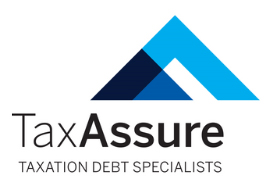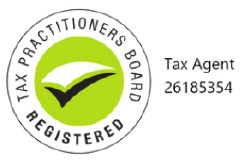Home » FAQs
Frequently Asked Questions
General
Yes. We are the only specialist tax debt resolution provider in Australia that is registered with the TPB. This means that we are regulated to ensure our professional and ethical conduct aligns with the appropriate national standards for tax practitioners.
In our years of experience as tax debt specialists, it is rare for clients with tax debt to face liquidation. Last financial year, less than 3% of businesses that we reviewed had an event of insolvency. Our clients intend to continue running a successful, viable business.
However, on the rare occasion that, after review and discussion with you, we identify that insolvency may be an option, then we can help get you in touch with people who can best assist.
After your free 30 minute tax debt evaluation, and once have provided us with the appropriate authorisations to contact the ATO on your behalf, we will provide you with a free tax debt resolution report within 48 hours.
Once we are engaged, the majority of cases we work on are resolved within 4-6 weeks. However, if there is a relevant financing or legal deadline, we always work within those parameters, and can achieve outcomes within 24-48 hours after receiving the appropriate authorisations. Your tax debt resolution report will include guidance about the time frame in which we expect your matter to be resolved.
This time frame can depend on a number of factors, including the complexity of your tax debt, and the caseload of similar matters within the ATO. Throughout our engagement, if you are prompt to authorise Tax Assure with access to your ATO information, and are responsive with providing the required financial information, this will also help the process run smoothly and swiftly.
Individuals / Businesses
Yes and no. Accountants have a broad role in the oversight of a client’s financial management. Whilst we often work closely with accountants as we help clients navigate tax debt, most accountants are not specialists in tax debt resolution.
Approximately 30-40% of Tax Assure’s clients are referred by accountants who want to connect those clients with specialists in managing tax debt. Tax Assure provides a separate and specialist expertise in how to navigate the complexities of the ATO, the various debt departments, people, processes, regulations and documentation that is
critical to ensuring the best possible outcome for your tax debt.
Yes. All of our clients are kept private and all information is kept confidential. Only with your permission is any of your information shared with an enforcement
authority such as the ATO, and only for the purposes of reducing your tax debt. We act for a number of large corporate clients and understand the importance of maintaining privacy.
Accountants/ Brokers/ Liquidators/ Lawyers
No. In fact, working with Tax Assure enhances the process. Having your client’s tax debt reduced can assist with the LVR. And once your client is in a position of compliance with the ATO (for example, through an active payment arrangement), this can also open up the options of lenders significantly.
Yes and no. Accountants have a broad role in the oversight of a client’s financial management. Whilst we often work closely with accountants as we help clients navigate tax debt, most accountants are not specialists in tax debt resolution.
Approximately 30-40% of Tax Assure’s clients are referred by accountants who want to connect those clients with specialists in managing tax debt.
Tax Assure provides a separate and specialist expertise in how to navigate the complexities of the ATO, the various debt departments, people, processes, regulations and documentation that is critical to ensuring the best possible outcome for your tax debt.
ATO Payment Plans
With a well-prepared ATO payment arrangement application, it is possible to get up to three years to repay your tax debt.
ATO payment plans are not as simple as the total debt divided by a set number of weeks or months, so our work involves negotiating the best possible terms with the ATO.
In short, yes. If you have a debt that is more than 90 days overdue and over $100k, the ATO can report it to a credit reporting agency, without any warning, which goes on your credit file.
The good news is, you don’t need to pay the debt in full to prevent this, you just need to be in a compliant payment arrangement.
Business tax debt over $100,000 is reportable to credit rating agencies if there is no payment plan in place and no active engagement with the ATO regarding the debt.
Which is why it is so crucial that you speak to us sooner rather than later.
We can engage with the ATO on your behalf, get a payment plan in place and get the issue dealt with – so it doesn’t impact your access to credit.
If you miss a payment on your ATO payment plan, it will default.
If a payment arrangement defaults, then the ATO can deploy its debt collection powers to recoup your tax debt, such as a garnishee notice or director penalty notice, or by taking steps to wind up your company or make you bankrupt.
However, in many cases it is possible to renegotiate your payment arrangement to establish new terms that better suit your needs. For this reason, it is critical to engage with the ATO if you foresee that you will miss a payment on your payment plan.
Tax Debt Negotiation
The short answer is no. The ATO is under a statutory duty to collect tax debt and is therefore unable to write off or forgive primary (core) debt. There is no negotiating this type of debt. The only exceptions to this are:
- Bankruptcy or liquidation, when the ATO is considered a creditor the same as any other entity that is owed money
- If it is uneconomical to pursue the debt - if the ATO deems that the individual or entity has (and will have) no way to pay (and they have tried other methods of recovery such as garnishee notices or DPNs).
However, even in these circumstances, the ATO can and will re-raise your debt in the future if you show income or assets that make the debt payable through a recovery action. As well, any future credit or refund you may receive can be applied to reduce your debt including other Australian Government agencies. So, when it comes to negotiating ATO debt, it is only possible to negotiate any interest and penalties.
At Tax Assure, we review the full ATO history for every client we work with to understand whether any interest or penalties can be reduced or refunded — even if these amounts have already been paid.
If the circumstances around the original debt fit the ATO’s legal criteria, almost anyone could be eligible for a refund of the interest and penalty charges that have been accrued on the core debt. We prepare an application for interest and penalty refunds with the objective of maximising the chance of achieving a 100% refund – which will either reduce current debt or can even result in a credit.
So while primary tax debt cannot be written off, there is a huge benefit in talking to us about possible refunds of interest and penalties.
We have an amazing track record of achieving 100% refunds for our clients.
At Tax Assure we offer a fixed success fee to negotiate your tax debt on your behalf.
This means that we don’t charge based on the time we spend, but instead for the outcomes we achieve. And if we don’t achieve a result that reduces your tax debt, then you don’t pay.
Yes and no.
Accountants have a broad role in the oversight of a client’s financial management. Whilst we often work closely with accountants as we help clients navigate tax debt, most accountants are not specialists in tax debt resolution.
Approximately 30-40% of Tax Assure’s clients are referred by accountants who want to connect those clients with specialists in managing tax debt.
Tax Assure provides a separate and specialist expertise in how to navigate the complexities of the ATO, the various debt departments, people, processes, regulations and documentation that is critical to ensuring the best possible outcome for your tax debt.
If you are even a day late on your ATO tax debt payment, general interest starts to accrue on your debt. Interest rates have climbed significantly in recent years, and interest compounds daily on your tax debt.
Your overall debt can comprise a number of elements: the primary debt, penalties charges and general interest charge (GIC).
The interest rates and penalties applied by the ATO means that overall debt really can add up fast. In some circumstances, the interest and penalties can be up to 50% the primary/core debt!
ATO Legal Action
No. Tax Assure is not a financier and does not lend money to our clients. Many clients' ideal scenario is for us to negotiate a long-term repayment plan directly with the ATO, with a manageable monthly repayment schedule for the capital debt, and no third party finance. And this is what often happens.
However, if finance is required, we can put you in touch with some good people from our wide network of contacts. Or we can support and advise you as you engage with your own contacts.
We often work as part of a virtual team (which can include accountants, advisors, financiers or brokers), with our only priority being to create the most effective, beneficial solution for you.
If you are a company director, then it is your responsibility for “ensuring that the company’s tax and super obligations are reported and paid on time.” If your company does not pay the relevant amount or liabilities by the due date, the ATO can recover these amounts from you personally in the capacity of a current or former company director. Recovery of these penalty amounts can begin once you have been issued an ATO Director Penalty Notice.
An ATO garnishee notice can be issued to a person or business that holds money for you or may hold money for you at a future date. You will be sent a copy of such a notice.
The notice requires that person or business to pay your money directly to the ATO to reduce your tax debt.
For individuals, a garnishee notice may be issued to:
- your employer or contractor
- banks, financial institutions and building societies where you hold accounts?
- people who owe money to you from the sale of real estate such as purchasers, real estate against and solicitors
In the case of businesses, a garnishee notice can be issued to:
- your financial institution
- trade debtors - supplier of merchant card facilities

